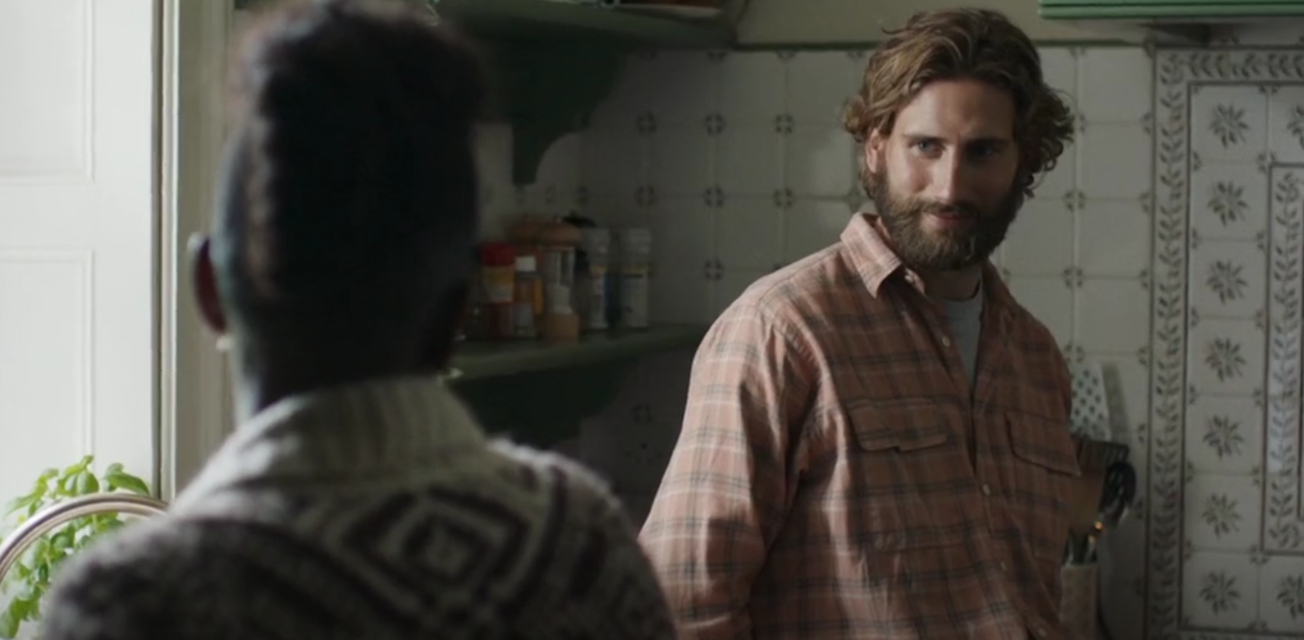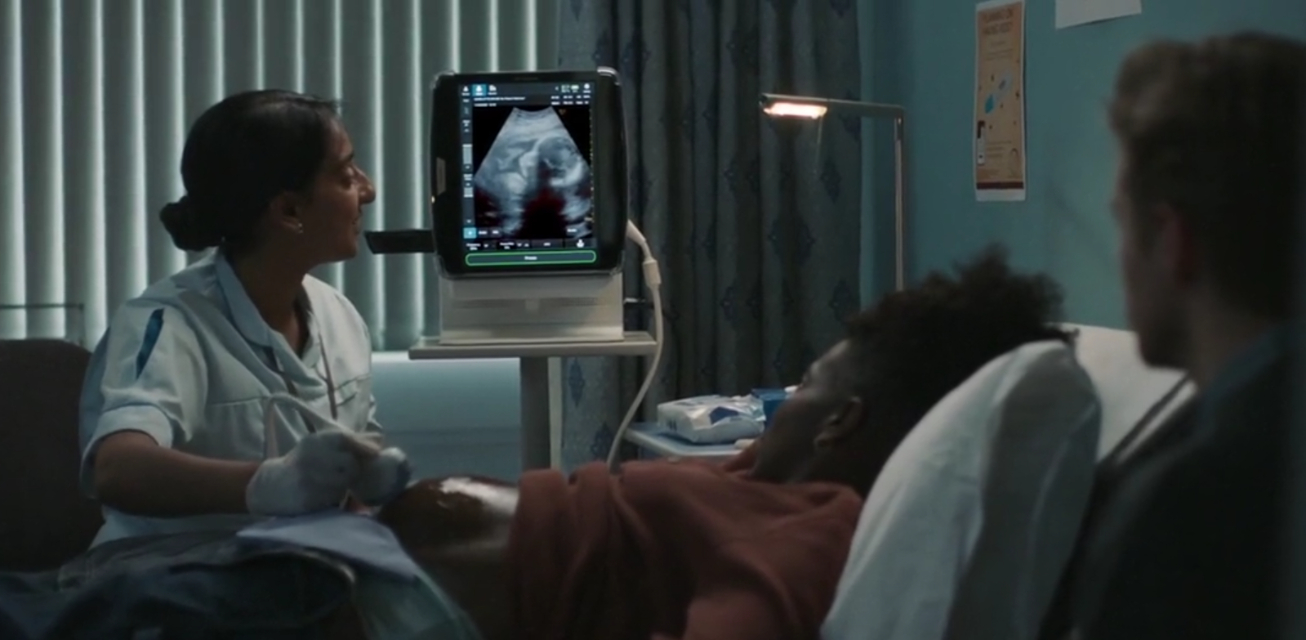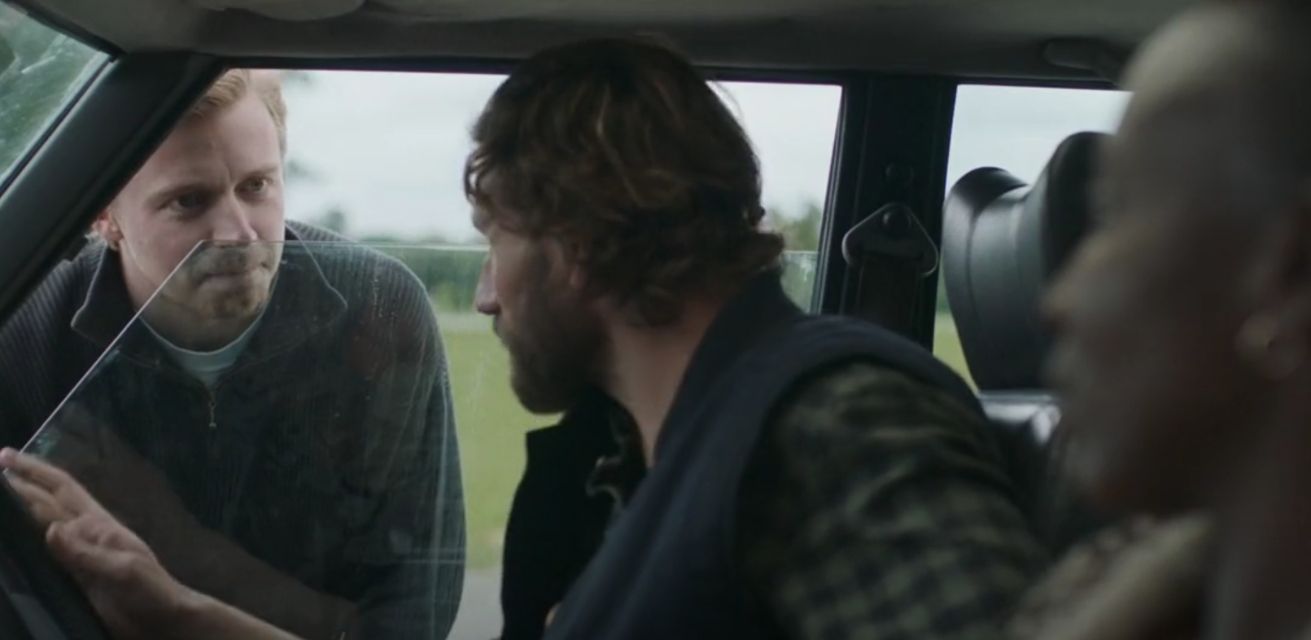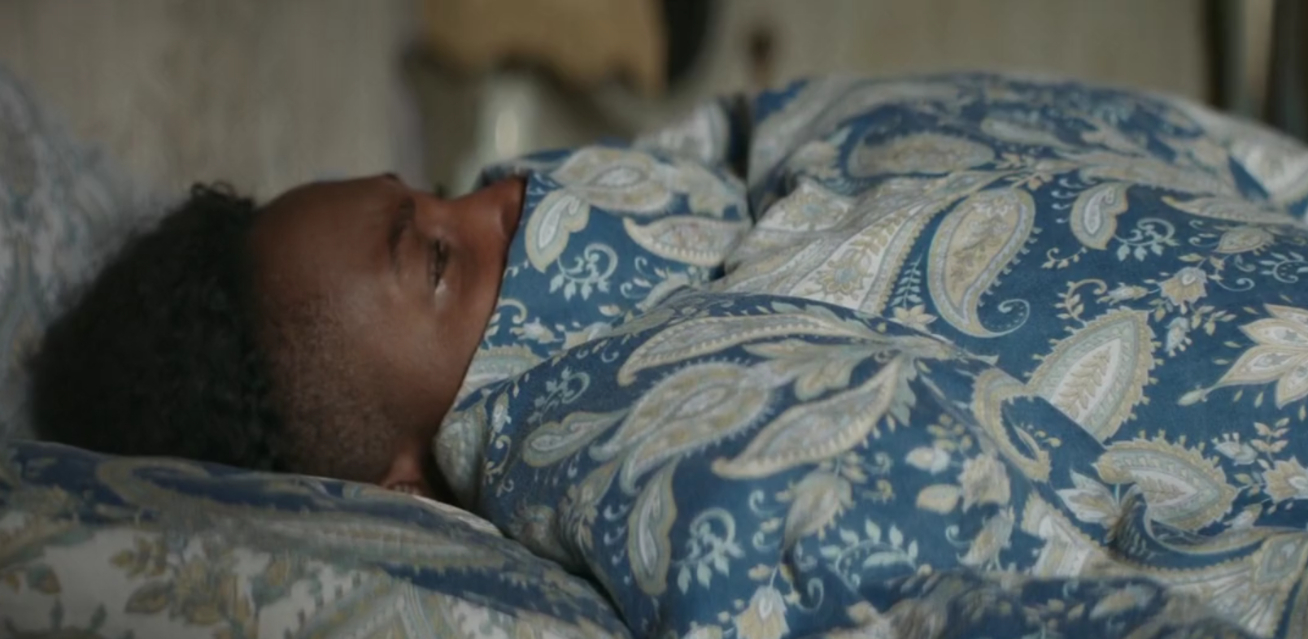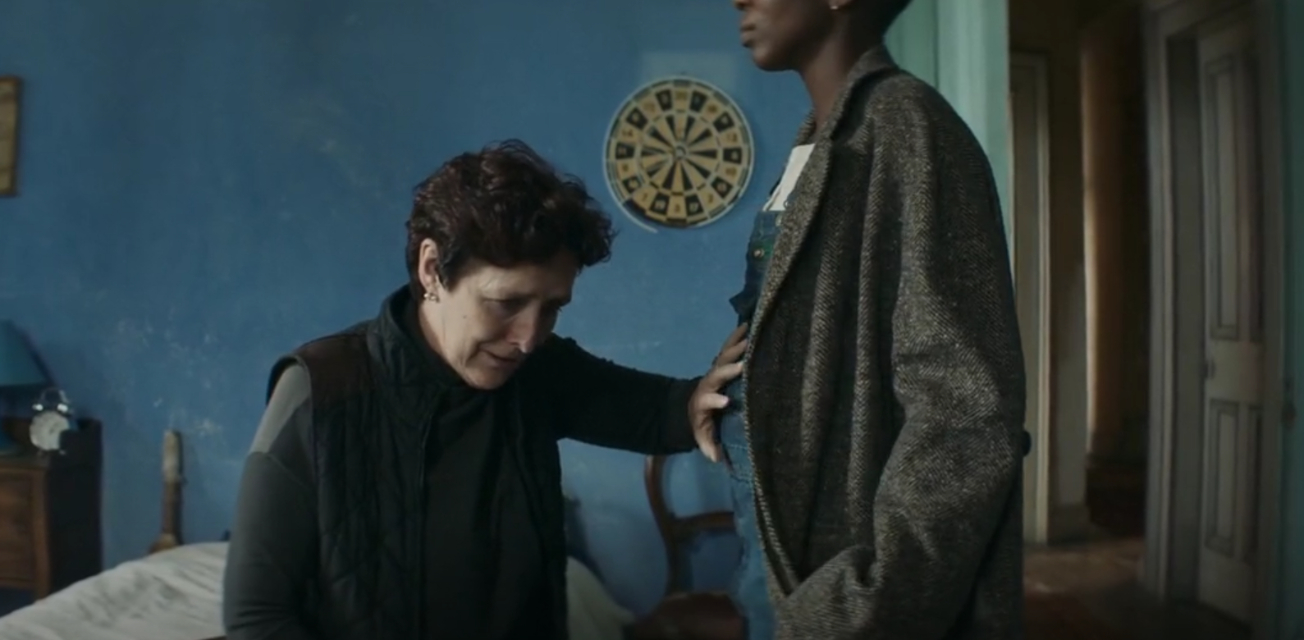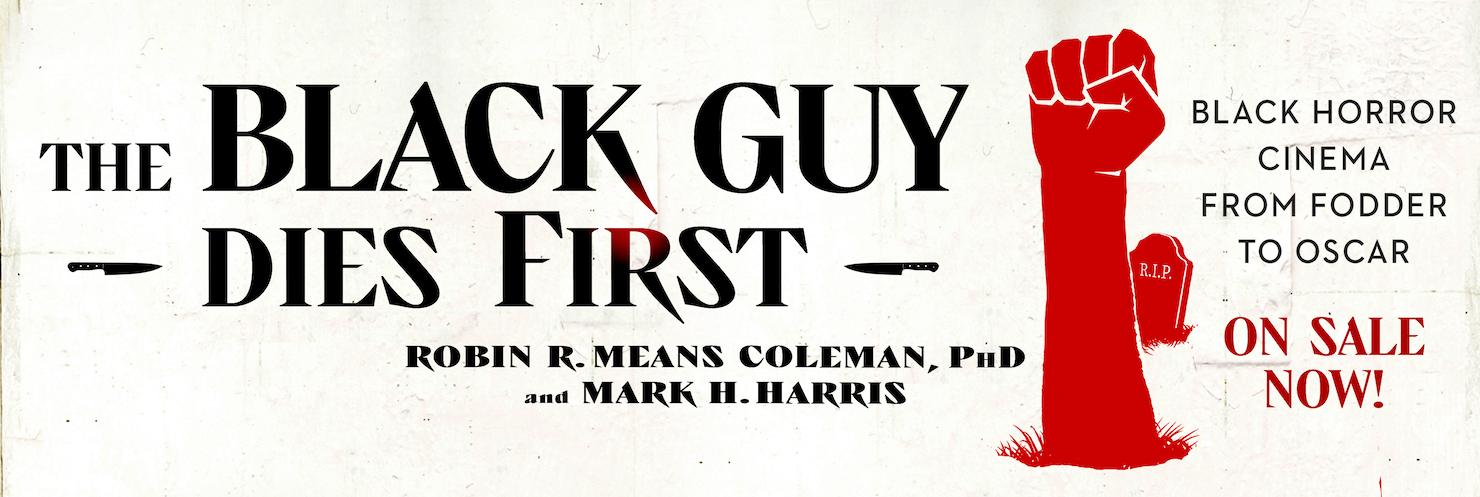Guess Who’s Coming to Dinner meets Rosemary’s Baby in Kindred, a polished, well-acted British thriller whose intriguing potential ultimately devolves into a ball of toothless frustration. The story revolves around Charlotte (Tamara Lawrance), a black woman whose white live-in boyfriend Ben’s (Edward Holcroft) family is a bit…clingy. When he informs his mother, Margaret (Fiona Shaw), of their intention to move to Australia, she flips her wig, insisting that he stay to take care of her decaying country estate, which has been in the family for nine generations. Margaret has a bad leg, and currently, only her stepson, Thomas (Jack Lowden), is around to provide upkeep.
When Charlotte discovers (to her dismay) that she’s pregnant, it serves only to solidify Margaret’s belief that they need to stay put, but before the couple can say “restraining order,” Ben is killed in a workplace accident. Prone to fainting spells since the pregnancy, Charlotte awakens after passing out to find herself in ye ol’ family mansion, with Margaret — but mostly Thomas — tending to her needs and informing her that the doctor advised her to rest…for the baby’s sake.
Thus begins a familiar refrain, as Charlotte is discouraged from leaving the home except for a casual walk around the grounds, or else risk losing her unborn child. She continues to lapse in and out of consciousness over the next few days, which stretch into weeks when Margaret informs her that the bank suddenly foreclosed on the house she shared with Ben. With nowhere else to go, Charlotte is stuck in the mansion, which feels increasingly like a prison, Margaret’s control over her life becoming more restrictive with each of Charlotte’s attempts to break free. As her paranoia grows, Charlotte can’t help but wonder to what lengths Ben’s family will go to ensure their bloodline remains in its ancestral home.
Kindred does a fantastic job of making you feel Charlotte’s frustrations, as her attempts to merely live life on her own terms are met with gaslighting, backstabbing and ultimately physical restraint. But the frustrations of the viewer go even further, watching the potential for a harrowing, paranoid, twisty thriller fade into lukewarm drama. First-time director Joe Marcantonio delivers an attractively grim-looking final product, but the blandness of its color palate unfortunately mirrors the blandness of the plot, which seems hesitant to dip its toes into the inherent genre campiness of what is essentially a “domestic hostage” flick — à la Misery or the silly fun of the recent Run.
There’s nothing silly nor fun about the somber Kindred, and while it’s OK if you don’t want to deliver the twists or shock value that is typical of this ilk of film (embodied by Misery’s “hobbling” scene), nothing of substance takes its place. There’s certainly enough in the compelling setup to build a real statement piece — most notably, the racial difference between Charlotte and Ben’s family — but race is never mentioned nor really even hinted at as any sort of motivating factor. I suppose one could infer that Kindred makes a statement about racial bias within the healthcare industry, but that seems like a stretch, as any racial message here feels unintentional. Its aspirations seem much more pedestrian.
As a psychological thriller, Kindred does a good job of making us wonder if Ben’s family is really as nefarious as Charlotte suspects or if it’s largely in her head (her own family having a history of psychosis), but because we don’t know where they’re coming from, this doubt backfires when it comes to building actual thrills. We don’t feel a sense of peril — the family clearly needs her alive to give birth, after all — and any physical danger she encounters is self-inflicted as she tries to escape. Kindred never builds sufficient tension because the stakes aren’t known, and the storytelling just feels overly polite. Only at the end does it try to buy into its genre darkness, but by that time, it feels unearned.
It’s a shame, because Charlotte, Margaret and Thomas make for the most intriguing trio of roommates this side of Three’s Company — each suffering past trauma that makes us question their current state of mind, each having hang-ups about their concept of family, and each skillfully portrayed by the top-notch cast — but while it’s a fascinating character study, Kindred is a limp thriller.
